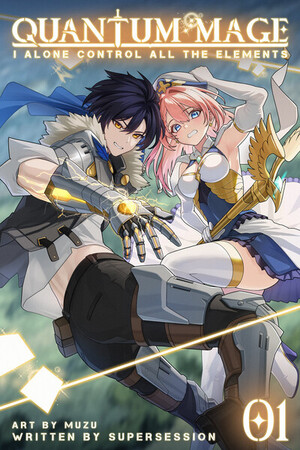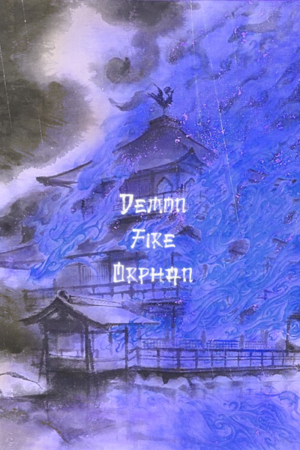Chapter 7:
Chapter 5 – The City Beneath the Singing Stone
The Archivist of Lost Eras
No wind this time. No shift. No shimmer.
Yusuf blinked once and was underground.
The air was cold, not just in temperature but in feeling—like held breath. Quartz veins glowed softly in the rock around him, lighting the narrow tunnel in soft patches of violet and gold. The walls weren't carved by tools. They arced like bone, as if they'd been fashioned from within the mountain itself.
The Codex trembled in his satchel. One word burned on its page:
"Sing."He moved forward, elbows against the walls. Every step produced a ripple through the floor—a hum, a low and almost inaudible vibration. He was walking on sound.
Then the tunnel expanded into a vast underground city.
Mirekah.
The City Under the Singing Stone.
Black stone structures curved inward, into spirals. Trails looped between suspended crystal lamps. And its citizens—dozens of them—walked through the streets in complete silence.
They parodied hellos, carried tools, danced through empty market stalls.
Nothing came from their mouths. Not even the sound of their footsteps.
It was watching a dream on mute.
Yusuf approached a woman seated near a well. She moved an empty pot in rhythmic synchrony, repeating the same action over and over again.
"Hello," Yusuf tried.
She did not answer. Merely kept stirring.
"Do you hear me?" Her eyes flickered up at him. Not empty. But hollowed out, like something inside had been muffled.
And she returned to her pot.
He looked around. Everyone was doing small things repeatedly—looping, as Ehlur. But this wasn't memory replaying.
This was memory caught. The Codex vibrated as he passed through a sweeping arch inscribed with glyphs. Inside, a spiral staircase went down.
Yusuf proffered one—and the moment his fingers crossed its face, it sang.
A bass note resonated. The slab radiated—and an image coalesced:A father lifting a laughing child into his arms. A picnic. Sunlight on their faces. A lullaby humming in the background.
And then—flicker.
The same man, older, standing wordlessly in the city above, eyes hollow. Forgotten.
The sound ran out.
The image dissipated.
Yusuf took flight, heart pounding.
These slabs were not graves.
They were records of memory—sustained by sound.
"Beautiful, isn't it?"
Yusuf turned around.
The faceless boy was standing beside one of the slabs, hood low. There had been no noise to give warning of his approach.
He lifted a hand and stroked the stone.
A soft note vibrated. It hummed through Yusuf's ribs.
"This is the Inverted Archive," the boy said. "Memory cut into vibration. Emotion shifted into tone. Identity shifted into frequency."
"But why do they not talk? Why are they silent?" Yusuf asked.
"They sacrificed their voices to recall."
Yusuf blinked. "What?"
The headless child cocked his head. "They preferred silence to forgetting. But it wasn't meant to last so long."
He slowly turned around.
"You need to seek out the dissonant shard—the memory that disrupted the tone."
The faceless child took him through a side corridor to a vaulted room illuminated only by luminescent quartz veins.
In the middle floated a crystal, shattered down the center.
A sound came out of it—a harsh, dissonant note. As if a submerged violin were played.Yusuf winced.
"This is it?"
"Yes," replied the child. "But be careful. This one has sharp edges."
Yusuf approached, Codex in hand.
He began to affix the shard to the Singing Stone—the city's central obelisk he had glimpsed previously. As he labored, sparkling filaments flowed from the Codex, crisscrossing the air like musical notation.
The ground trembled.
Then—
A tiny hand wrapped around his arm.
"Wait," the boy whispered. "Not yet."
"Why?" Yusuf grunted.
"Some voices were never meant to come back."
But the procedure had begun.
The shard seared in pain—and memory exploded in a flash of light.
The city howled.
Yusuf was blinded by the sheer force of it. Not light. Not wind. Sound.
It wasn't a scream of pain—it was the song of thousands of voices reclaiming themselves.
The Singing Stone throbbed. Harmonic waves radiated in concentric circles.
City folk halted.
They blinked.
Then a voice.
"Mother?"
Another joined.
"Is it morning?"
And then the flood: words, songs, laughter, tears.
Silence was shattered.
Yusuf collapsed beside the Singing Stone, chest heaving.
He looked up—and saw the faceless child standing at the edge of the square.
Watching.
The child pointed with one finger.
Pointed behind Yusuf.
Yusuf whirled—and carved on the face of the Singing Stone, shimmering for an instant before it disappeared, was a single sentence:"I was here. – A.E.A."His father's initials.
The boy stepped closer. Kneeling beside Yusuf, he inscribed a symbol on the earth with a white chalk stick.
The very same one from the altar.
The very same one from his father's desk.
The very same one he'd discovered in the Codex weeks ago.
“He passed through here,” the child said. “Not long before you.”
“He’s… close?” Yusuf asked.
“He left echoes,” the child replied. “But some are buried deep.”
“Then I’ll find them.”
The child stood. “Every echo has a cost.”
He vanished.
Yusuf rose slowly.
The city lived now. Really lived. People recalled one another. They talked, sang, cried. A man called out to his wife. A girl sang a lullaby. A teacher recited an ancient tale to his pupils.But none of them saw Yusuf.
Already, the recollection of his existence was disappearing.
It held the Codex.
"I was here too," he breathed.
And entered into the next strand.
Yusuf blinked once and was underground.
The air was cold, not just in temperature but in feeling—like held breath. Quartz veins glowed softly in the rock around him, lighting the narrow tunnel in soft patches of violet and gold. The walls weren't carved by tools. They arced like bone, as if they'd been fashioned from within the mountain itself.
The Codex trembled in his satchel. One word burned on its page:
"Sing."He moved forward, elbows against the walls. Every step produced a ripple through the floor—a hum, a low and almost inaudible vibration. He was walking on sound.
Then the tunnel expanded into a vast underground city.
Mirekah.
The City Under the Singing Stone.
Black stone structures curved inward, into spirals. Trails looped between suspended crystal lamps. And its citizens—dozens of them—walked through the streets in complete silence.
They parodied hellos, carried tools, danced through empty market stalls.
Nothing came from their mouths. Not even the sound of their footsteps.
It was watching a dream on mute.
Yusuf approached a woman seated near a well. She moved an empty pot in rhythmic synchrony, repeating the same action over and over again.
"Hello," Yusuf tried.
She did not answer. Merely kept stirring.
"Do you hear me?" Her eyes flickered up at him. Not empty. But hollowed out, like something inside had been muffled.
And she returned to her pot.
He looked around. Everyone was doing small things repeatedly—looping, as Ehlur. But this wasn't memory replaying.
This was memory caught. The Codex vibrated as he passed through a sweeping arch inscribed with glyphs. Inside, a spiral staircase went down.
He went down.
The vibration intensified.
At the bottom was a room of smooth stone slabs, standing like sarcophagi. Each had a soft light shining from it.
Yusuf proffered one—and the moment his fingers crossed its face, it sang.
A bass note resonated. The slab radiated—and an image coalesced:A father lifting a laughing child into his arms. A picnic. Sunlight on their faces. A lullaby humming in the background.
And then—flicker.
The same man, older, standing wordlessly in the city above, eyes hollow. Forgotten.
The sound ran out.
The image dissipated.
Yusuf took flight, heart pounding.
These slabs were not graves.
They were records of memory—sustained by sound.
"Beautiful, isn't it?"
Yusuf turned around.
The faceless boy was standing beside one of the slabs, hood low. There had been no noise to give warning of his approach.
He lifted a hand and stroked the stone.
A soft note vibrated. It hummed through Yusuf's ribs.
"This is the Inverted Archive," the boy said. "Memory cut into vibration. Emotion shifted into tone. Identity shifted into frequency."
"But why do they not talk? Why are they silent?" Yusuf asked.
"They sacrificed their voices to recall."
Yusuf blinked. "What?"
The headless child cocked his head. "They preferred silence to forgetting. But it wasn't meant to last so long."
He slowly turned around.
"You need to seek out the dissonant shard—the memory that disrupted the tone."
The faceless child took him through a side corridor to a vaulted room illuminated only by luminescent quartz veins.
In the middle floated a crystal, shattered down the center.
A sound came out of it—a harsh, dissonant note. As if a submerged violin were played.Yusuf winced.
"This is it?"
"Yes," replied the child. "But be careful. This one has sharp edges."
Yusuf approached, Codex in hand.
He began to affix the shard to the Singing Stone—the city's central obelisk he had glimpsed previously. As he labored, sparkling filaments flowed from the Codex, crisscrossing the air like musical notation.
The ground trembled.
Then—
A tiny hand wrapped around his arm.
"Wait," the boy whispered. "Not yet."
"Why?" Yusuf grunted.
"Some voices were never meant to come back."
But the procedure had begun.
The shard seared in pain—and memory exploded in a flash of light.
The city howled.
Yusuf was blinded by the sheer force of it. Not light. Not wind. Sound.
It wasn't a scream of pain—it was the song of thousands of voices reclaiming themselves.
The Singing Stone throbbed. Harmonic waves radiated in concentric circles.
City folk halted.
They blinked.
Then a voice.
"Mother?"
Another joined.
"Is it morning?"
And then the flood: words, songs, laughter, tears.
Silence was shattered.
Yusuf collapsed beside the Singing Stone, chest heaving.
He looked up—and saw the faceless child standing at the edge of the square.
Watching.
The child pointed with one finger.
Pointed behind Yusuf.
Yusuf whirled—and carved on the face of the Singing Stone, shimmering for an instant before it disappeared, was a single sentence:"I was here. – A.E.A."His father's initials.
The boy stepped closer. Kneeling beside Yusuf, he inscribed a symbol on the earth with a white chalk stick.
The very same one from the altar.
The very same one from his father's desk.
The very same one he'd discovered in the Codex weeks ago.
“He passed through here,” the child said. “Not long before you.”
“He’s… close?” Yusuf asked.
“He left echoes,” the child replied. “But some are buried deep.”
“Then I’ll find them.”
The child stood. “Every echo has a cost.”
He vanished.
Yusuf rose slowly.
The city lived now. Really lived. People recalled one another. They talked, sang, cried. A man called out to his wife. A girl sang a lullaby. A teacher recited an ancient tale to his pupils.But none of them saw Yusuf.
Already, the recollection of his existence was disappearing.
It held the Codex.
"I was here too," he breathed.
And entered into the next strand.




Please sign in to leave a comment.